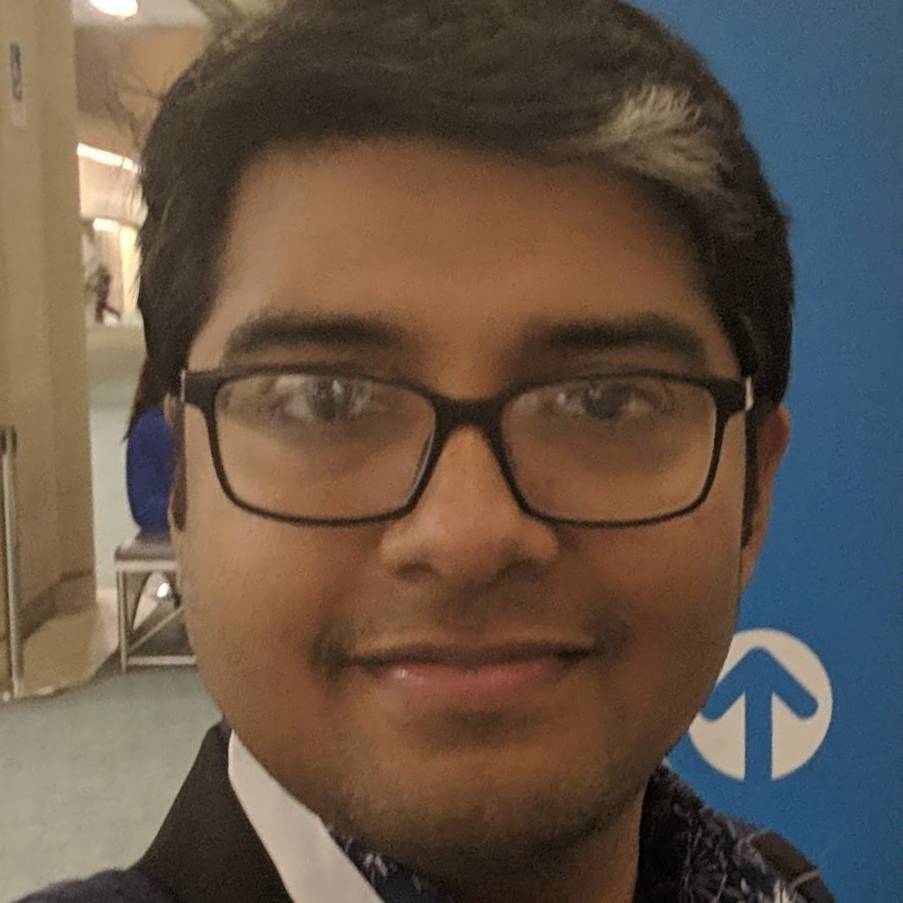Dr. Soumyadeep Mukherjee
 Assistant Professor of Community and Public Health Promotion
Assistant Professor of Community and Public Health Promotion
the Health and Physical Education Department at Rhode Island College
"I feel that we all need to take the time to understand ourselves... Not only did those 60-90 minutes with PCLP help recharge my batteries, I always left the meetings more informed and inspired."
What is your current job or career? How satisfied are you with said position?
I am an Assistant Professor of Community and Public Health Promotion in the Health
and Physical Education Department at Rhode Island College (Providence, RI). My responsibilities
include teaching 3 to 4 three-credit undergraduate and graduate-level courses each
semester, advising students, supervising community and public health interns, volunteering
in department and college-wide committees as well as service outside the college,
revising and re-revising existing curricula, engaging in research, and working with
students to help them gain some research experience.
I am mostly satisfied—even if a tad overwhelmed at times—with my experience in this position so far. I must admit that it has been a steep learning curve in terms of adjusting to the roles and responsibilities and transitioning from a trainee role as a Postdoctoral Associate to that of a faculty. However, my colleagues, my faculty mentor, the department chair, and the deans have all been supportive and helped me adjust with my new job. Teaching and mentoring students has been the most satisfying activities.
What was your involvement in PCLP?
I was a participant in the 2017-18 PCLP cohort led by Lyl Tomlinson.
Did you obtain a job within the career field you focused on during your tenure in
PCLP? If not, what important lessons did you learn from your PCLP directed career
exploration?
Yes, indeed. I have been aiming for a tenure-track position in a teaching-intensive
institution for some time. I got the opportunity to teach a course at Stony Brook
University. This experience reaffirmed my interest and helped me hone my skills.
Reflecting on the program, what part of PCLP proved to be the most useful?
The holistic experiences I was lucky to have at professional development events and
career panels that I had the opportunity of attending in SBU, thanks to PCLP, the
CIE, the Career Center, the Office of Postdoctoral Affairs, the CELT, and the Graduate
School helped me navigate through the process of job search and interviews, and are
proving useful in my current job. Hearing from colleagues at PCLP who were in similar
career paths was a great educational opportunity. The career panels comprising of
SBU alumna who were in teaching-intensive colleges and universities was inspiring.
While not all of this were specific to PCLP, I was able to stay updated of such events
because of the discussions at PCLP.
PCLP encouraged us in self-assessments of our strengths, interests, and personalities. This exercise proved crucial in prioritizing the types of jobs that would be the best fit for me: “What do I really want? What would be the best fit with my passions and interests?” This helped me figure out that the job that most befits my interests—besides a teaching position—would be in science communication and/or in the editorial board of a scientific journal, something that I would have never figured about myself!
How did having a cohort of students with similar motivations about career development
assist your efforts?
The PCLP meetings offered me a unique window of opportunity to interact with postdocs
of other disciplines. Often confined to the silos of our own departments, it was refreshing
to hear from colleagues across disciplines and realize that we were in the same boat.
Even those who had different career interests than mine helped me understand why or
why not a particular direction may not be good for me. Hearing about the ordeals of
others seeking tenure-track faculty positions who were already in the job market before
myself was terrifying, yet helped me prepare for what to expect. PCLP offered me a
space—similar to a support group—where I could share my insecurities, questions, and
frustrations without the fear of getting judged. Lyl, our discussion leader, made
each of us feel valued, which engendered interesting conversations and sharing of
ideas.
What advice would you give to current or future PCLP members?
This is more a reflection rather than an advice, but I feel that we all need to take
the time to understand ourselves. I, for example, was not so certain whether I should
focus on faculty jobs at research-intensive institutions, or whether teaching-focused
positions would be a good fit. My stint as a Postdoc at SBU, the self-assessments
and candid conversations at the PCLP meetings helped me figure out that a teaching-focused
position is what I would enjoy the most.
On some days, making it to a PCLP meeting did seem a challenge, especially because I had to walk from the East Campus all the way to the main campus (it is not that far, really!). However, I always felt so glad afterwards for taking the time and making the effort. Not only did those 60-90 minutes with PCLP help recharge my batteries, I always left the meetings more informed and inspired.
